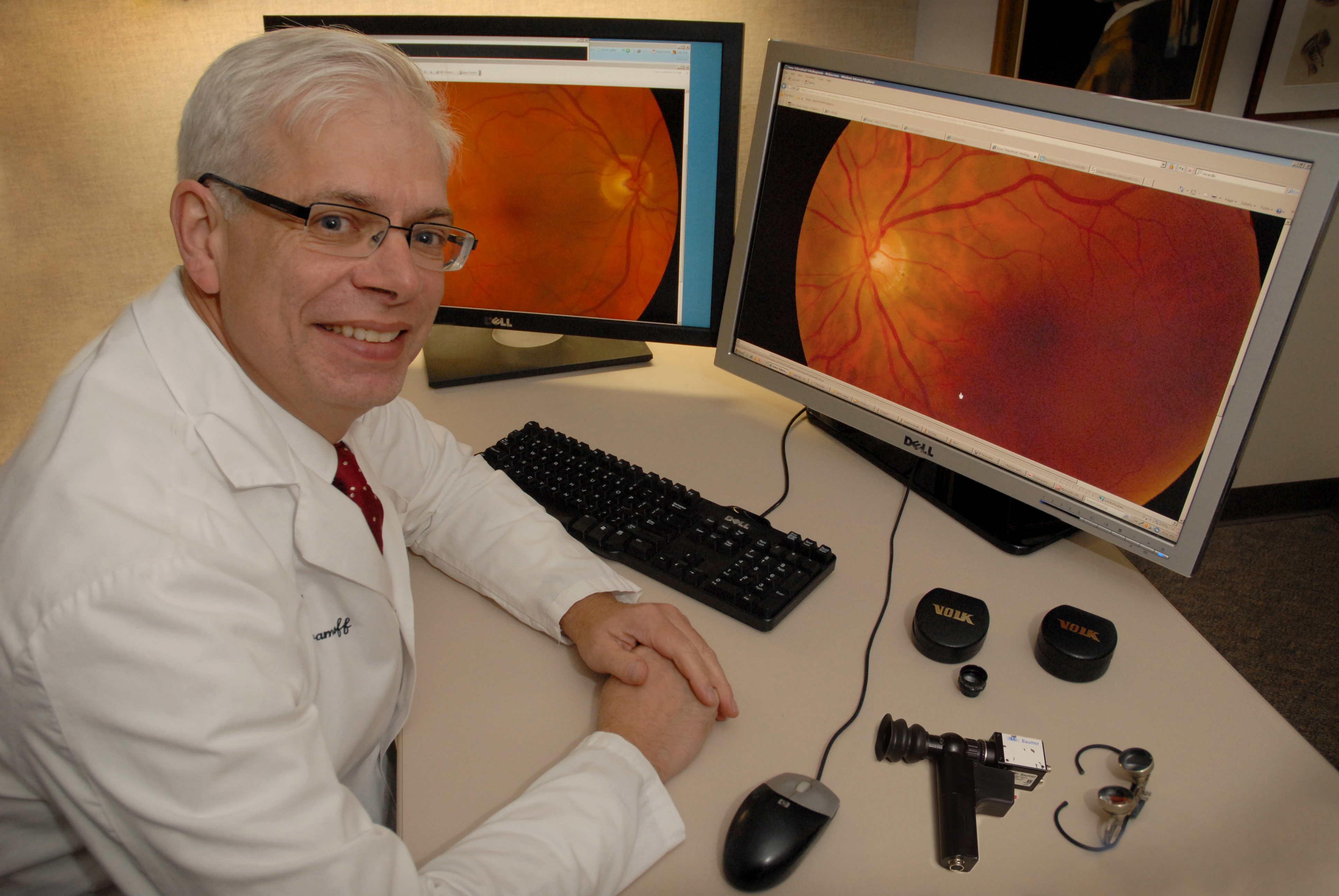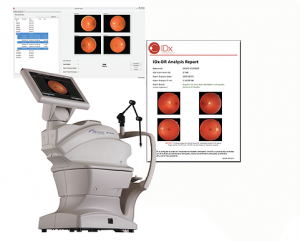
Aiming to make healthcare more affordable and accessible globally, Dr. Michael Abramoff has been experimenting with automated medical treatment and diagnostics for decades. IDx, his company based in Iowa, has already created the first FDA approved autonomous artificial intelligence (AI), capable of diagnosing diabetic retinopathy without physician intervention. This system, the IDx-DR, was previously covered on DocWire, however we recently spoke with the IDx President to look further into this innovative system and its inception.
Having roughly 30 years of experience working with AI and neural networks, Dr. Abramoff is a seasoned veteran in the field of machine learning. About 22 years ago when he was training to be an ophthalmologist, Dr. Abramoff saw that diabetes was the leading cause of blindness in the U.S. “It [diabetic retinopathy] is very much preventable, but you need to catch it early before there are symptoms,” he stated. Using his expertise in AI, he decided to use this technology to facilitate this diagnosis.
The IDx Trial
In their FDA clinical trial, Dr. Abramoff and his team used primary care clinics’ existing staff members and trained them to use the IDx-DR to image and assess patients’ retinas in a matter of 4 hours. Being that the primary care setting is among the most frequently attended by those with diabetes, this was a perfect environment to test the system. This AI diagnosis was then compared to a “reference standard” diagnosis made by experts evaluating professionally taken retinal photographs to compare the IDx-DR’s efficacy to that of the traditionally accepted method of diagnosing diabetic retinopathy.
The results from the trial showed that those using the IDx-DR system were able to generate diagnostic results for 96% of the patients, leading to the device gaining FDA marketing approval. Dr. Abramoff says the entire diagnostic process only takes a few minutes and does not require a trained ophthalmologist to be present. Taking only 4 hours to educate staff on using the system, IDx-DR truly requires minimal training. With only half of the 30 million diabetic Americans receiving retinal examinations last year, the IDx-DR offers a fast and easy diagnostic procedure that can be performed in a primary care setting without an expert present. For more info on the IDx-DR study, click here.
What’s Next?
The system is currently only in place at University of Iowa Health Care, but being that IDx has just recently been able to start setting prices for and marketing the IDx-DR, Dr. Abramoff is confident this will soon change. “We’ve been discussing with many others [healthcare providers] but we want to only make announcements when the contract is signed, the integration is performed, and the actual patients are done. We expect to do a lot of announcements in the coming weeks and months,” he said.
As for further research and development with IDx, Dr. Abramoff said he would like to further AI diagnostic use to other conditions in the back of the eye, such as glaucoma and macular degeneration, stating that IDx expects “to do clinical trials next year” for these diseases. Dr. Abramoff expressed plans for expansion into diseases outside of the eye, such as Alzheimer’s disease.
This past March, Dr. Abramoff also patented another system that can measure the diameters of blood vessels in the retina, potentially providing information about cardiovascular health. He states that these measurements can tell you not only about blood flow in the eye, but in the rest of the body as well, particularly in the brain. “The uniqueness of the retina is that you can look at the blood vessels and measure things without needing radiation, dye or injections,” he said. An AI system using these blood vessel diameters to diagnose cardiovascular disease is “a little further away,” but is another goal for IDx.
Already partners with IBM Watson Health for distribution in the EU, Dr. Abramoff expressed that he is actively searching for U.S. partnerships, being that this is where most diabetic patients are. “I am flying all over the planet to help create these partnerships, so expect more soon.”
Receiving marketing approval just 4 months ago, IDx-DR is still a fairly new technology that will likely have a prolific future. “I think it is a very exciting moment in healthcare,” said Dr. Abramoff. “There are so many possibilities now… of bringing diagnostics, or even therapeutics, to where the patients really are.”
See how we’re using artificial intelligence to diagnose a diabetes-related eye disease before it causes blindness. https://t.co/eKEM4sEZxB
— University of Iowa Health Care (@uihealthcare) July 27, 2018
Sources: IDx







 © 2025 Mashup Media, LLC, a Formedics Property. All Rights Reserved.
© 2025 Mashup Media, LLC, a Formedics Property. All Rights Reserved.